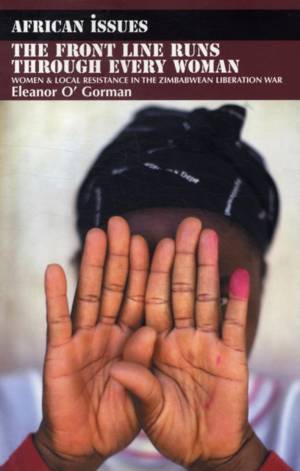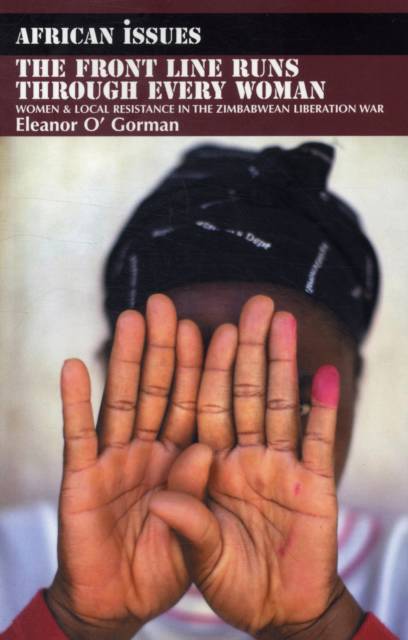
- Afhalen na 1 uur in een winkel met voorraad
- Gratis thuislevering in België vanaf € 30
- Ruim aanbod met 7 miljoen producten
- Afhalen na 1 uur in een winkel met voorraad
- Gratis thuislevering in België vanaf € 30
- Ruim aanbod met 7 miljoen producten
Zoeken
The Front Line Runs Through Every Woman
Women & Local Resistance in the Zimbabwean Liberation War
Eleanor O' Gorman
€ 48,45
+ 96 punten
Omschrijving
A Zimbabwe-specific study, focusing on the lives of women in a small locale (Chiweshe) during the anti-colonial insurgency, this book is also a challenge to established and still current modes of thought and research orientations which over-simplify the complex realities women face in the full range of violent conflicts, both past and present. By contextualizing the voices of women of Chiweshe, not only is an important and under-developed aspect of Zimbabwean and African history revealed, but a new approach to comprehending the highly-tensioned lives of women in war is presented, which is characterized here as Gendered Localised Resistance. This is examined through the prism of life in the Protected Villages in Chiweshe experienced in everyday social relations, revolutionary roles, and food security. It traces how women forged strategies of survival and resistance in the middle of guerrilla warfare pitted between the forces of the state and the revolutionary resistance movements. The book can be read as a unique and richly detailed account of the lives of women during the Zimbabwe civil war and liberation struggle; as a wider argument about how researchers can approach and incorporate lived experience into accounts of larger dynamics (war/revolution); and as a substantial and important contribution to feminist historiography and writings on women and war. Eleanor O' Gorman is Senior Associate at the Gender Studies Centre and a Research Associate at the Department of Politics and International Studies at the University of Cambridge; an independent consultant who has advised the UN, the UK Government (DFID and FCO), the Irish Department of Foreign Affairs, the European Commission, and the Organisation for Economic Cooperation and Development (OECD) Zimbabwe: Weaver Press
Specificaties
Betrokkenen
- Auteur(s):
- Uitgeverij:
Inhoud
- Aantal bladzijden:
- 208
- Taal:
- Engels
- Reeks:
- Reeksnummer:
- nr. 27
Eigenschappen
- Productcode (EAN):
- 9781847010407
- Verschijningsdatum:
- 20/10/2011
- Uitvoering:
- Paperback
- Formaat:
- Trade paperback (VS)
- Afmetingen:
- 137 mm x 211 mm
- Gewicht:
- 294 g

Alleen bij Standaard Boekhandel
+ 96 punten op je klantenkaart van Standaard Boekhandel
Beoordelingen
We publiceren alleen reviews die voldoen aan de voorwaarden voor reviews. Bekijk onze voorwaarden voor reviews.








